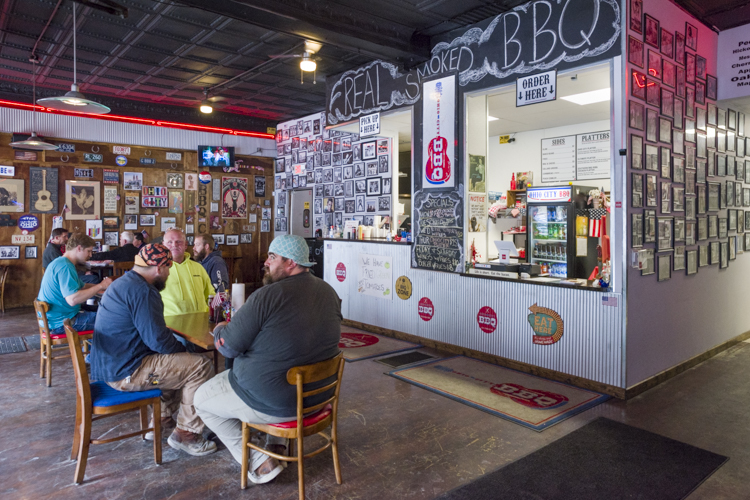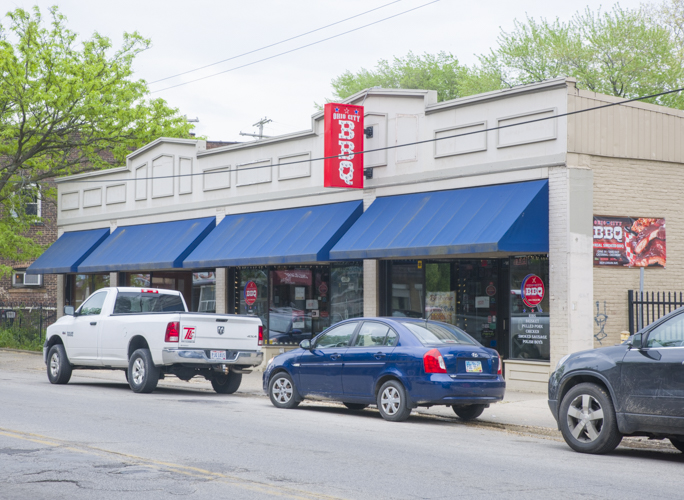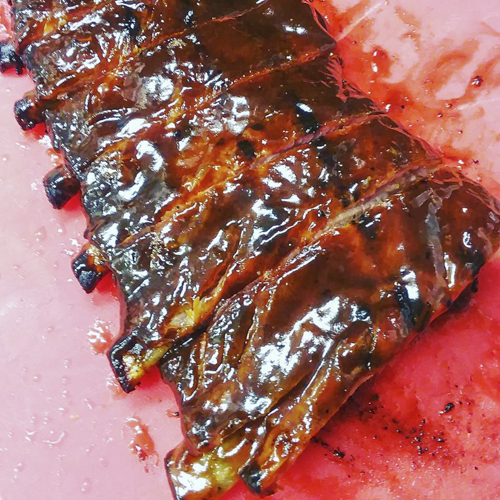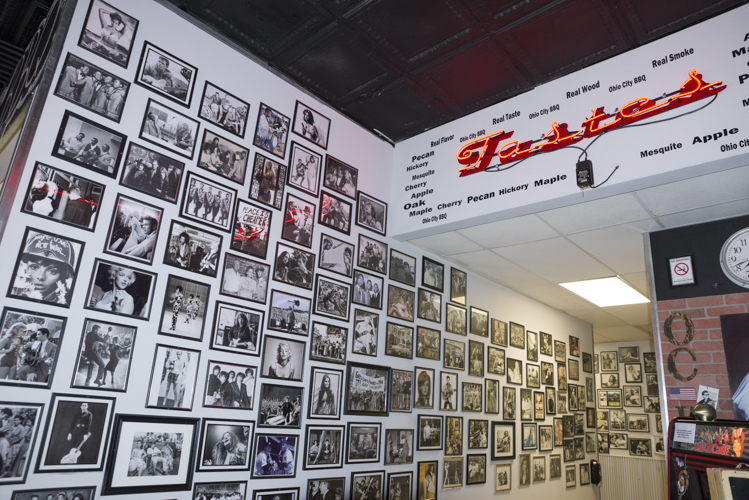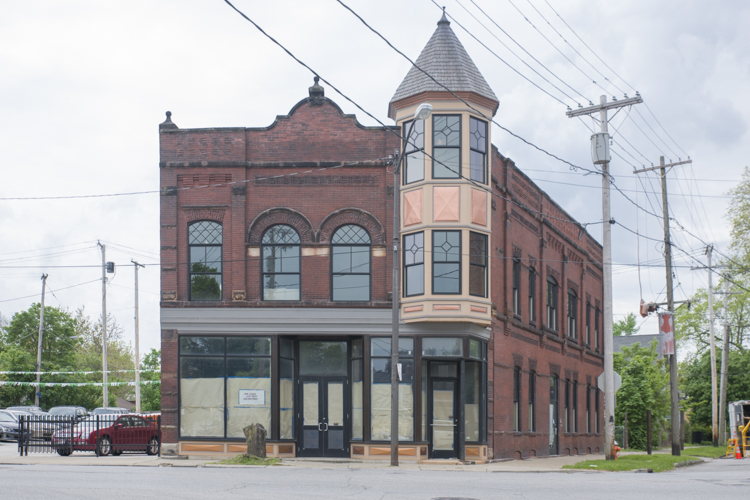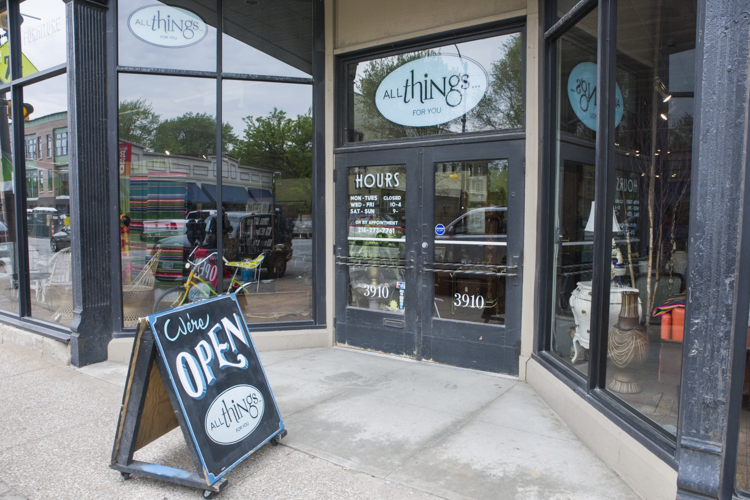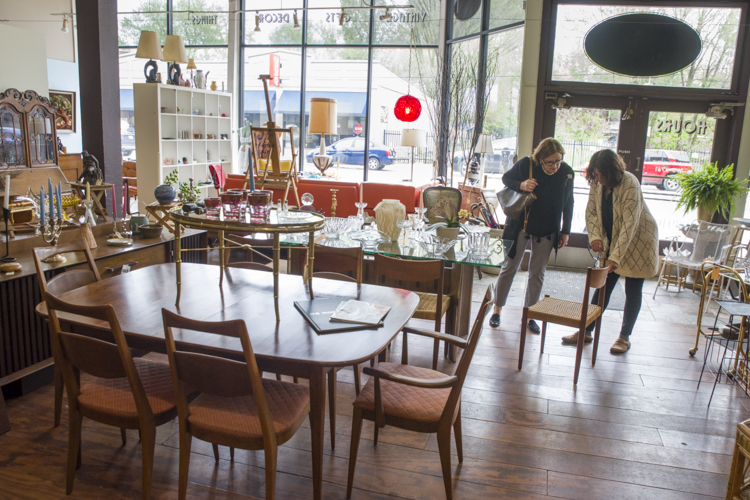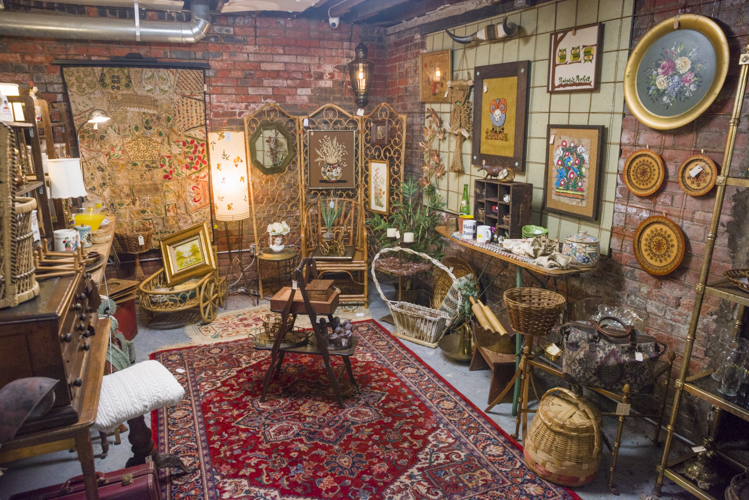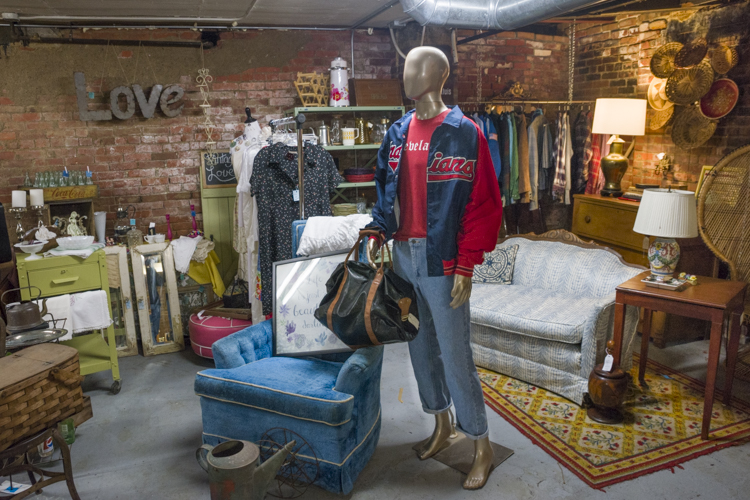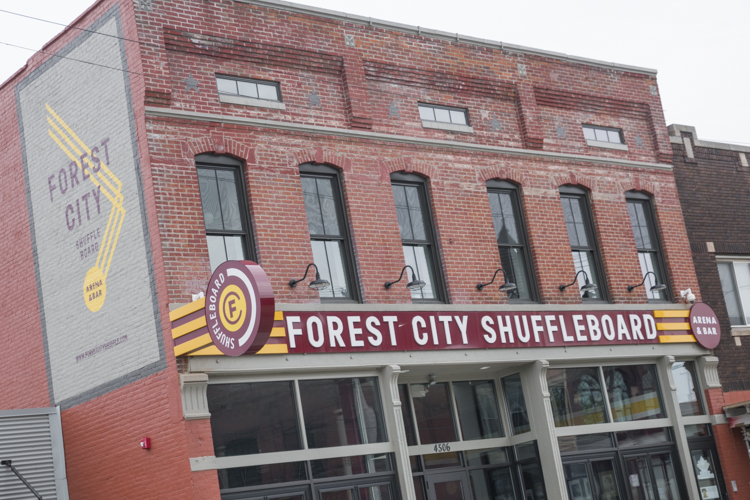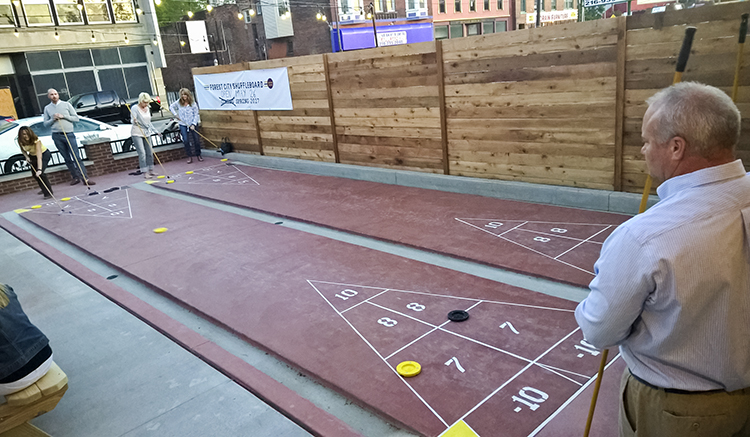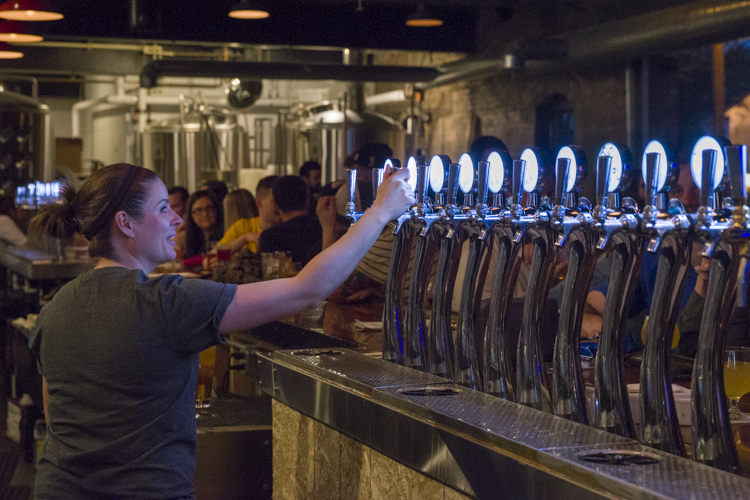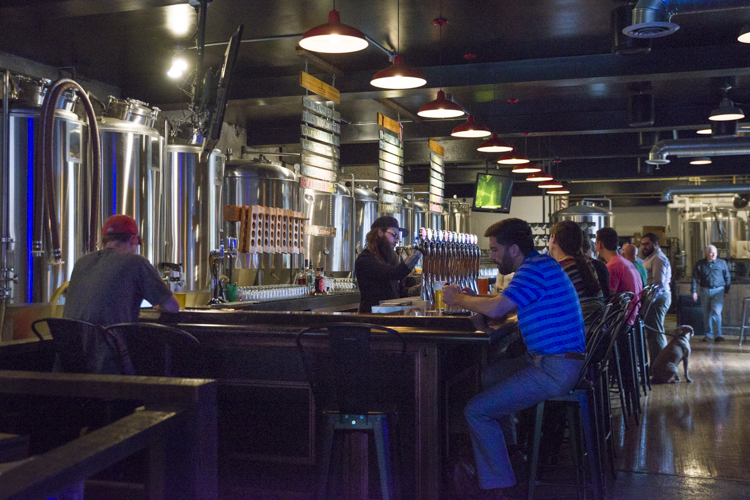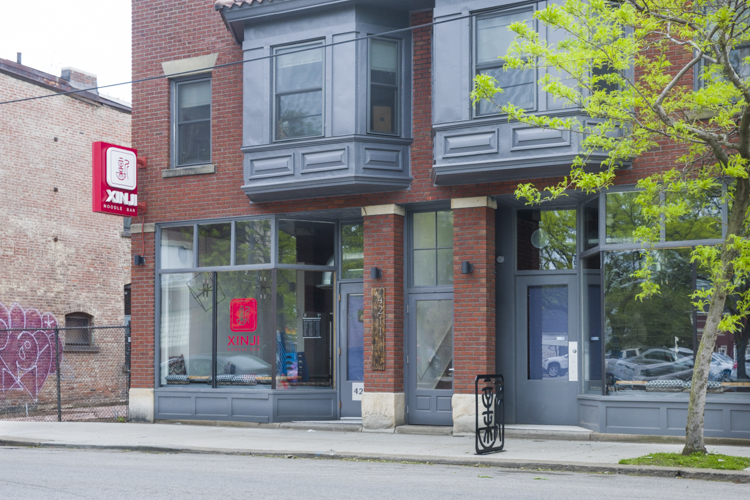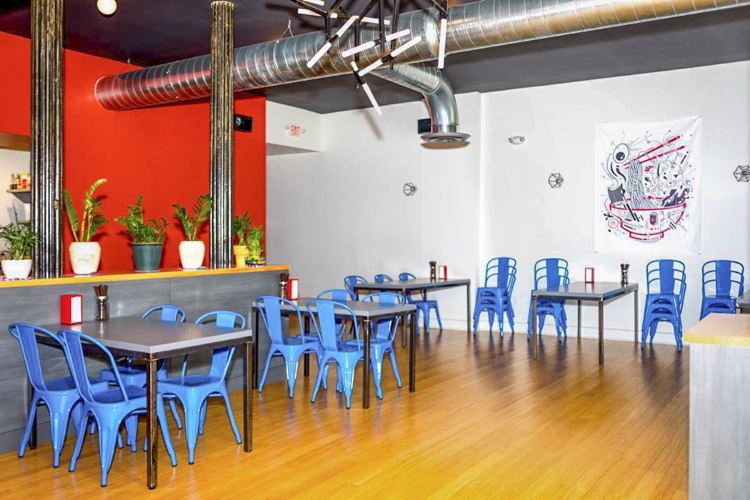
Is Lorain Avenue the new ‘heart’ of Ohio City? These urban entrepreneurs seem to think so
A decade after Ohio City leaders began trying to capitalize on the success of West 25th St. by luring new businesses to Lorain Avenue, local entrepreneurs are moving to this funky west side main street to take advantage of affordable rents and a newly emerging restaurant, retail, and nightlife scene.
Although Tom McNair, executive director of Ohio City Inc. (OCI), says he always “perceived investment along Lorain would start turning the corner [from West 25th St.] and heading west,” it hasn’t quite happened that way.
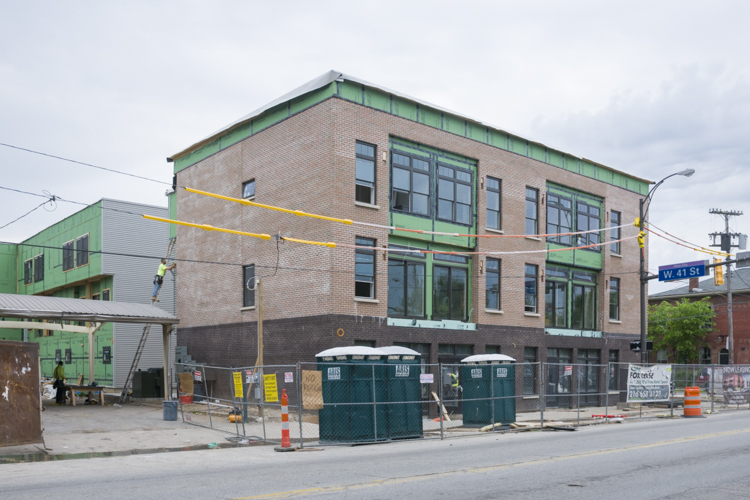 Instead, businesses like Platform Beer Company, Jack Flaps, and now Forest City Shuffleboard have invested in empty buildings in the West 40s, a good half-mile away from the West Side Market. Their success has attracted other like-minded businesses—effectively creating new centers of gravity on once-darkened stretches of Lorain Avenue.
Instead, businesses like Platform Beer Company, Jack Flaps, and now Forest City Shuffleboard have invested in empty buildings in the West 40s, a good half-mile away from the West Side Market. Their success has attracted other like-minded businesses—effectively creating new centers of gravity on once-darkened stretches of Lorain Avenue.
From 2010 to 2018, 128 new businesses opened in Ohio City. 44 of them—or about 35 percent— were on Lorain Avenue, according to OCI’s most recent annual report.
That number will only swing upwards again with new additions Stir Studio Kitchen, Arsenal Cider, and Cent’s Pizzeria, all of which are slated to open near West 45th and Lorain where Forest City Shuffleboard has created an unlikely retro gaming hotspot sandwiched between a car dealership and a barber shop.
A few blocks away, Urban Community School (UCS) is partnering with MetroHealth to build a new community health clinic on its campus. Hammers are also swinging on $300,000 townhomes at West 47th and Lorain, and developers are wrapping up construction on a 32-suite townhouse-style apartment building at Lorain and West 41st Street. And up and down the old block, spaces are beginning to turn over as owners rehab their buildings for new tenants.
On this—one of the west side’s most notorious streets, once famous for hot dogs, dirty antique stores, and prostitution—Clevelanders are seeing what amounts to a mini-construction boom.
“We think of Lorain as the neighborhood’s main street,” says Ashley Shaw, OCI's director of economic development and neighborhood planning. “Regional tourism is drawn to West 25th St. Detroit Avenue is seeing dense mixed-use development. But we have existing 2-3 story mixed use buildings on Lorain, and that’s where we’re see a lot of small startups locating. Because of the building stock, it allows a low barrier to entry for startup businesses that couldn’t afford to get in at West 25th and Detroit.”
Providing a platform for success
This was certainly the case for Justin Carson of Platform Beer Company, who bought a former antique store at 4125 Lorain Ave. where “even the glass block windows were boarded up” and, at first, putting flowers in barrels out front seemed like guerilla gardening.
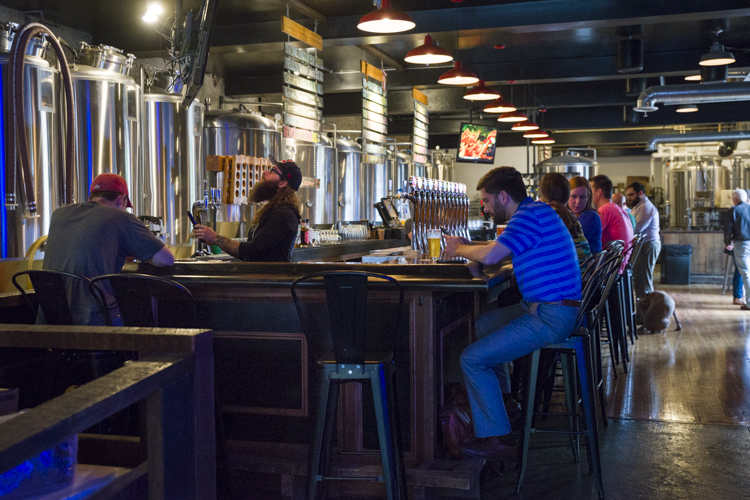 Platform Beer CompanyInitially, the plan was to open a small three-barrel tasting room. Yet today, Platform distributes beer throughout the state and region and, in 2017, was named to the Brewers Association’s list of the fastest-growing breweries in the country.
Platform Beer CompanyInitially, the plan was to open a small three-barrel tasting room. Yet today, Platform distributes beer throughout the state and region and, in 2017, was named to the Brewers Association’s list of the fastest-growing breweries in the country.
“Really, I noticed that the median household income was about $90,000 north of Lorain and $20,000 to $30,000 south of Lorain,” says Carson. “It just seemed like Lorain was this endpoint where nobody was really looking to invest.”
In the past few years, Carson and partner Paul Benner have opened brewpubs in Columbus and Cincinnati. They’re working on opening a fourth location in Pittsburgh later this summer. They’re also planning to open a unique sour beermaking facility called Phunkenship near their headquarters in Clark-Fulton.
The move to Lorain was considered risky at the time, but the day Platform opened its doors, there was a line into the street, Carson says. Then more people started to come down there to check out the scene.
“There was a day [I was] taking pictures because people were actually walking up and down the street,” he says, noting that the redevelopment helped people to connect the dots between newer businesses and older ones like Nick’s Diner.
Since then, Platform’s success has helped attract other businesses, including The Plum, The Grocery, Herb'n Twine, and more. Two of the area’s newest businesses sell vintage home goods, a longstanding tradition in the area.
“It was the space that sold me,” says Nicola Wilhelm of Helm Collective, a startup that sold goods at the Cleveland Flea before expanding to a small storefront at 3904 Lorain. “I knew the area was up-and-coming, and that I would be selling vintage in an area known for antiques for so long, with so much charm.”
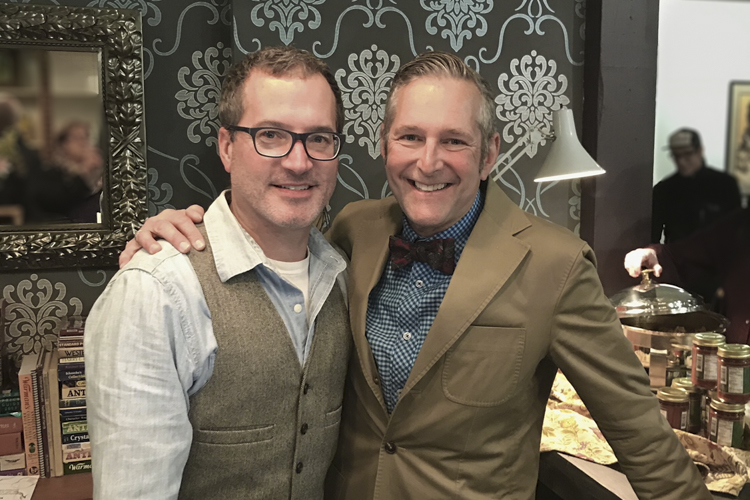 Dwight Kaczmarek and his partner Tim Yanko curate their own vintage finds at All Things For YouFor Dwight Kaczmarek of All Things For You, it was an opportunity to help reinvent what others think of when they think of Ohio City. “We call ourselves the heart of Ohio City, because if you look at a map and do the math, we’re right in the middle,” he says of his roomy 7,500-square-foot antique mall located next door to Helm Collective.
Dwight Kaczmarek and his partner Tim Yanko curate their own vintage finds at All Things For YouFor Dwight Kaczmarek of All Things For You, it was an opportunity to help reinvent what others think of when they think of Ohio City. “We call ourselves the heart of Ohio City, because if you look at a map and do the math, we’re right in the middle,” he says of his roomy 7,500-square-foot antique mall located next door to Helm Collective.
At All Things For You, Kaczmarek and his partner Tim Yanko curate their own vintage finds from estate sales and buyouts, along with renting small consignment spaces to other dealers. Their eye-popping shop forms the perfect bridge between the new and old Lorain Avenue.
Jim Miketo of Forest City Shuffleboard took a page from Platform’s playbook when he bought the building at 4506 Lorain with plans to replicate his venue in Marblehead, The Erie Social Shuffleboard Club and Bar. Over the past 100 years, the historic, three-story structure on Lorain has been home to a pigeon feed company, a model airplane supply store, and, mostly recently, a Hispanic market.
Today, it’s been restored with a beautiful new addition. Miketo is so confident in the area that he’s building $300,000 townhomes on West 47th (with four of the five sold already) and planning an apartment building for an additional lot on the corner.
“I’m trying to create a little neighborhood here,” says Miketo. “Any time you can get public investment meeting private investment, that’s a nice complement.”
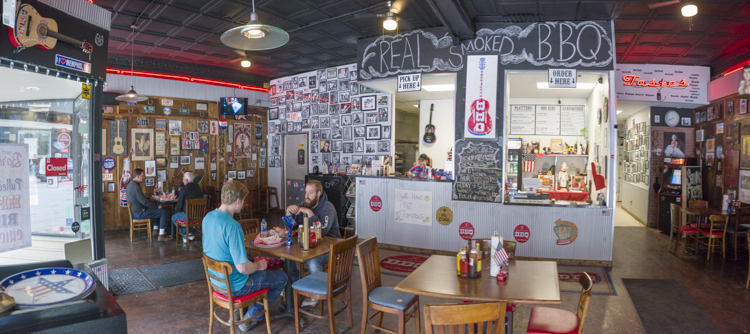
Paving the way for the future
As prices appreciate on Lorain, community leaders hope to retain the area’s diversity. To that effect, not all of the new owners are white guys in baseball hats. Nav Singh, a Toronto native who owns Ohio City Barbeque, moved to Cleveland when his cousins told him the city was rebuilding and he could get in at the ground floor level. He smokes his meats on site and sells them every day until they’re gone. “Cleveland is a great city, very economical and affordable,” he says.
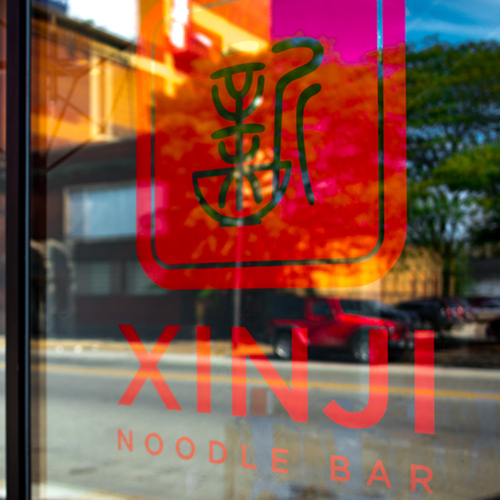 Shuxin Liu, who owns Xinji Noodle Bar, worked under Michelin-starred chef Dante Boccuzzi before opening his eatery at 4211 Lorain in 2017. His concept was to merge traditional ramen with farm-to-table cuisine, and it’s been successful so far.
Shuxin Liu, who owns Xinji Noodle Bar, worked under Michelin-starred chef Dante Boccuzzi before opening his eatery at 4211 Lorain in 2017. His concept was to merge traditional ramen with farm-to-table cuisine, and it’s been successful so far.
“I think for most Clevelanders this area is still considered undiscovered, and it’s very affordable,” says Liu. “It’s more of a neighborhood.”
With great access to public transportation, some of the area’s more affordable housing, and soon-to-be-built amenities like the Red Line Greenway, McNair says that Lorain has the potential to serve the entire west side of Cleveland, yet acknowledges that realizing this objective will be challenging as the street continues to become redeveloped.
McNair compares the new Lorain Avenue Cycle Track, which could open in a few years when the street is redone, to the 8.2-mile Indianapolis Cultural Trail, which loops around downtown and has brought more than a billion dollars of increased value to the area. OCI, the city and the Northeast Ohio Areawide Coordinating Agency (NOACA) have recently cobbled together enough funding for the project, which will add some of the city’s first protected bike lanes.
Since Ohio City has a 39 percent poverty rate, and one-third of residents don’t have cars, creating a street that’s accessible to pedestrians, cyclists and transit-dependent users is important.
“It’s not lost on us how Lorain fits into the broader infrastructure,” says McNair. “This will be a major mode shift—we want to attract investment and really, truly change the way the city functions.”


